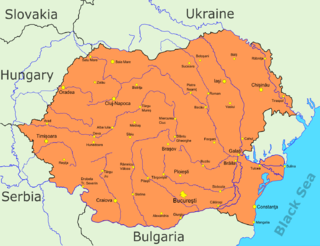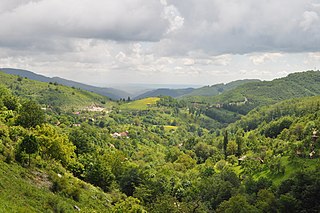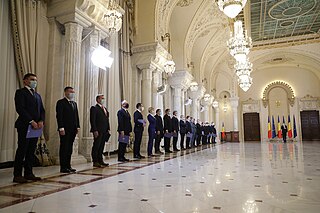Chart
Graphs are unavailable due to technical issues. There is more info on Phabricator and on MediaWiki.org. |
Evolution of the minimum wage in Romania
The minimum wage in Romania is the lowest monthly or hourly remuneration that employers are legally allowed to pay their workers in Romania. The sum is decided by the Romanian government and is subject to periodic reviews and adjustments based on economic indicators, inflation rates, and other relevant factors.
As of 1 January 2025, the minimum gross monthly wage in Romania is 4.050 RON, equivalent to approximately €814. This translates to an hourly rate of 24,5 RON, based on a standard work month of 168 hours. [1] This figure doesn't account for any additional benefits, such as meal vouchers or allowances, that employers might provide.
| Starting date | Gross Value in RON | Salary Growth | Gross Hourly Pay in RON | NET Value in RON | Gross Value in EUR | NET Value in EUR | Legislation |
|---|---|---|---|---|---|---|---|
| 1 January 2025 | 4.050 RON | +9.46% | 24,5 RON/Hourly | 2574 RON | €814 | €517 | HG 598/2024 |
| 1 July 2024 | 3.700 RON | +12.1% | 22,02 RON/Hourly | 2363 RON | €743 | €474 | HG 598/2024 [2] |
| 1 October 2023 | 3.300 RON | +10% | 19,96 RON/Hourly | 2079 RON | €695 | €417 | HG 900/2023 [3] |
| 1 January 2023 | 3.000 RON | +17.6% | 18,14 RON/Hourly | 1898 RON | €645 | €383 | HG 1447/2022 [4] |
| 1 January 2022 | 2.550 RON | +14.3% | 15,23 RON/Hourly | 1524 RON | €515 | €308 | HG 1071/2021 [5] |
| 1 January 2020 | 2230 RON | 14,04 RON/Hourly | 1346 RON | €466 | €281 | HG 935/2019 [6] | |
| 1 January 2019 | 2080 RON (for people without a University Degree/ 2350 RON for people with a University Degree or minimum 15 working years) [7] | €445/€504 | HG 937/2018 [8] | ||||
| 1 January 2018 | 1900 RON [8] | + 37.9% | 11,40 RON/Hourly | €413 | HG 846/2017 [8] | ||
| 1 February 2017 | 1450 RON | + 16.0% | 8,73 RON/Hourly | €320 | HG 1/2017 [9] | ||
| 1 May 2016 | 1250 RON | + 19.0% | 7,38 RON/Hourly | €275 | HG 1017/2015 [10] | ||
| 1 July 2015 | 1050 RON | + 7.7% | €236 | HG 1091/2014 [11] | |||
| 1 January 2015 | 975 RON | + 8.3% | €216 | ||||
| 1 July 2014 | 900 RON | + 5.9% | €205 | HG 871/2013 [12] | |||
| 1 January 2014 | 850 RON | + 6.3% | €189 | ||||
| 1 July 2013 | 800 RON | + 6.7% | €179 | HG 23/2013 [13] | |||
| 1 February 2013 | 750 RON | + 7.1% | €171 | ||||
| 1 January 2012 | 700 RON | + 4.5% | €155 | HG 1225/2011 [14] | |||
| 1 January 2011 | 670 RON | + 11.7% | €159 | HG 1193/2010 [14] | |||
| 1 January 2009 | 600 RON | + 11.1% | €142 | HG 1051/2008 [15] | |||
| 1 October 2008 | 540 RON | + 8.0% | €142 | HG 1051/2008 [16] | |||
| 1 January 2008 | 500 RON | + 28.2% | €140 | HG 1507/2007 [17] | |||
| 1 January 2007 | 390 RON | + 18.2% | €114 | HG 1825/2006 [18] | |||
| 1 January 2006 | 330 RON | + 6.5% | €90 | HG 1766/2005 [18] [19] | |||
| 1 January 2005 | 310 RON | + 10.7% | €85 | HG 2346/2004 [19] | |||
| 1 January 2004 | 2,800,000 ROL | + 12.0% | €70 | HG 1515/2003 [20] | |||
| 1 January 2003 | 2,500,000 ROL | + 42.9% | €65 | HG 1105/2002 [20] | |||
| 1 March 2002 | 1,750,000 ROL | + 25.0% | €62 | HG 1037/2001 [21] | |||
| 1 March 2001 | 1,400,000 ROL | + 40.0% | €56 | HG 231/2001 [22] | |||
| 1 December 2000 | 1,000,000 ROL | + 42.9% | €45 | HG 1166/2000 [23] | |||
| 1 February 2000 | 700,000 ROL | + 55.6% | €39 | HG 101/2000 [24] | |||
| 1 May 1999 | 450,000 ROL | + 28.6% | €28 | HG 296/1999 [25] | |||
| 1 April 1998 | 350,000 ROL | + 40.0% | €38 | ||||
| 1 October 1997 | 250,000 ROL | + 11.1% | |||||
| 1 August 1997 | 225,000 ROL | + 50.0% | |||||
| 1 February 1997 | 150,000 ROL | + 54.6% | |||||
| 1 August 1996 | 97,000 ROL | + 29.3% | |||||
| 1 April 1995 | 75,000 ROL | + 15.4% | |||||
| 1 July 1994 | 65,000 ROL | + 8.3% | |||||
| 15 March 1994 | 60,000 ROL | + 33.3% | |||||
| 1 December 1993 | 45,000 ROL | + 11.9% | |||||
| 1 October 1993 | 40,200 ROL | + 34.0% | |||||
| 1 May 1993 | 30,000 ROL | + 70.5% | |||||
| 1 March 1993 | 17,600 ROL | + 6.0% | |||||
| 1 January 1993 | 16,600 ROL | + 9.1% | |||||
| 1 November 1992 | 15,215 ROL | + 17.8% | |||||
| 1 September 1992 | 12,920 ROL | + 15.4% | |||||
| 1 May 1992 | 11,200 ROL | + 22.4% | |||||
| 1 March 1992 | 9,150 ROL | + 7.6% | |||||
| 1 January 1992 | 8,500 ROL | + 21.4% | |||||
| 1 November 1991 | 7,000 ROL | + 3.3% | |||||
| 1 September 1991 | 6,775 ROL | + 13.4% | |||||
| 1 May 1991 | 5,975 ROL | + 27.8% | |||||
| 1 April 1991 | 4,675 ROL | + 48.4% | |||||
| 1 March 1991 | 3,150 ROL | + 57.5% | |||||
| 1 July 1988 | 2,000 ROL | + 33.3% | [26] | ||||
| 1 September 1983 | 1,500 ROL | + 5.3% | [26] | ||||
| 1 August 1979 | 1,425 ROL | + 18.8% | [26] | ||||
| 1 July 1975 | 1,200 ROL | + 5.3% | [26] | ||||
| 1 August 1974 | 1,140 ROL | + 14.0% | [26] | ||||
| 1 September 1972 | 1,000 ROL | + 25.0% | [26] | ||||
| 1 May 1970 | 800 ROL | + 6.7% | [26] | ||||
| 1 March 1970 | 750 ROL | + 7.1% | [26] | ||||
| 1 August 1967 | 700 ROL | + 27.3% | [26] | ||||
| 1 September 1965 | 550 ROL | + 15.8% | [26] | ||||
| 1 December 1961 | 475 ROL | + 18.8% | [26] | ||||
| 1 August 1959 | 400 ROL | + 14.3% | [26] | ||||
| 1 May 1957 | 350 ROL | + 59.1% | [26] | ||||
| 1955 | 220 ROL | + 32.5% | [26] | ||||
| 1949 | 166 ROL | [26] |

The unification of Moldova and Romania is a popular concept and hypothetical unification in the two countries that began during the Revolutions of 1989. The Romanian Revolution in 1989 and the independence of Moldova in 1991 further contributed to the development of a movement for the unification of the two Romanian-speaking countries. The question of reunification is recurrent in the public sphere of the two countries, often as a speculation, both as a goal and a danger. Though historically Romanian support for unification was high, a March 2022 survey following the Russian invasion of Ukraine indicated that only 11% of Romania's population supports an immediate union, while over 42% think it is not the right moment.

Immigration to Romania is less common than immigration to most other European Union countries, with Romania having 3.6% of the population foreign born as of 2021. Among immigrants, the most common countries of birth were Republic of Moldova (40%), Italy (11%) and Spain (9%). About two thirds of the foreign born population consists of labour migrants.

The Mehedinți Plateau Geopark is a protected area situated in Romania, on the administrative territory of counties Gorj (5%) and Mehedinți (95%).
The current structure of the Romanian Land Forces is as follows:

The Save Romania Union is a liberal political party in Romania that sits on the centre to centre-right of the political spectrum. It is currently the third largest party in the Parliament of Romania with 41 deputies and 20 senators, and a fifth at local level nationwide, after the Democratic Alliance of Hungarians in Romania (UDMR/RMDSZ) and the People's Movement Party (PMP), two smaller centre-right political parties in the country.

Mihai Tudose is a Romanian politician, jurist and academic, deputy in the Parliament of Romania, a former Minister of Economy in 2017 and a former Prime Minister of Romania in 2018. On 16 January, 2018 he resigned from his position as Prime Minister after his own Social Democratic Party (PSD) retracted its political support for his government. He subsequently switched from PSD to Victor Ponta's party PRO Romania in 2019.

Ion-Marcel Ciolacu is a Romanian politician who currently serves as the prime minister of Romania. He is the leader of the Social Democratic Party (PSD) since 2019. As a previously little-known politician outside of Buzău County, where he owns a pastry shop and a consulting firm, Ciolacu came into national prominence when he became the deputy prime minister in 2018 in the cabinet of Prime Minister Mihai Tudose.
The COVID-19 pandemic in Romania is part of the ongoing pandemic of coronavirus disease 2019 caused by severe acute respiratory syndrome coronavirus 2. The virus was confirmed to have reached Romania on 26 February 2020, when the first case in Gorj County was confirmed.
This article documents the timeline of the COVID-19 pandemic in Romania.

The Cîțu Cabinet was the 131st government of Romania, led by the national liberal (PNL) Prime Minister Florin Cîțu. It was removed from office after a motion of no confidence passed by the Parliament with a record of 281 votes, the largest number of votes on a motion of no confidence since the Romanian Revolution.

Diana Iovanovici Șoșoacă is a Romanian lawyer, activist, and far-right politician. Șoșoacă rose to prominence as an anti-vaccine activist during the COVID-19 pandemic. She has served as a Member of the European Parliament (MEP) for S.O.S. Romania since her election in 2024.

A presidential election was held in Romania on 24 November 2024. A second round was to be held on 8 December 2024, as no candidate achieved an absolute majority in the first round. On 6 December 2024, the Constitutional Court of Romania annulled the results of the first round of the election, arguing that a Russian influence operation impacted the vote. This will be the ninth presidential election held in post-revolution Romania. The incumbent Klaus Iohannis, first elected in 2014 and then re-elected in 2019, must vacate the office at the end of his term, as the Romanian Constitution allows a president to be re-elected only once.
Events from the year 2022 in Romania.
Beginning at 04:05 EEST on 29 April 2022, a series of multiple denial-of-service attack (DDoS) attacks were launched against several Romanian government, military, bank and mass media websites. Behind the attacks was the pro-Kremlin hacking group Killnet, who resorted to this in response to a declaration made by Florin Cîțu, the then-president of the senate of Romania, that Romania would provide Ukraine with military aid. The Russian Federation, who invaded the latter, publicly spoke against Western military support for Ukraine, stating that it would result in "lightning-fast retaliatory strikes". The DDoS attacks continued until 1 May.
Renewing Romania's European Project is a political party in Romania. It is a splinter of the Save Romania Union (USR) and is currently led by Dragoș Pîslaru and Ramona Strugariu as co-presidents. The party was founded in May 2022, in opposition to USR's leadership under Cătălin Drulă. The party is mostly associated with former technocratic Prime Minister and former USR president Dacian Cioloș, who founded the party. On 7 May 2023, Pîslaru and Strugariu were voted co-presidents at the latest congress of the party.
Events from the year 2023 in Romania.

On 22 May 2023, a general strike was called in Romania's education system, involving 150,000 teachers and another 60,000–70,000 teaching and auxiliary staff, demanding a rise in salaries in education by 25%. During the strike, there have been multiple attempts by syndicates and teachers to negotiate with the Romanian government, as well as with President Klaus Iohannis. Simultaneous demonstrations took place in Bucharest and several other major cities nationwide.

AER for Romania was an ecological Romanian electoral alliance active between December 2023 and February 2024. Established on 9 December 2023, exclusively as an electoral alliance between the Green Party – The Greens (PV VERZII) and the Ecologist Party of Romania (PER), the alliance was formed to participate together in the June 2024 European Parliament elections in Romania.